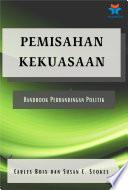
SEJARAH ISLAM PERIODE KLASIK
Penulisan sejarah Islam biasanya diklasifikasikan menjadi periode klasik, periode pertengahan, dan periode modern. Periode klasik identik dengan masa kejayaan Islam, periode pertengahan cenderung didominasi kemunduran Islam, sedangkan periode modern ditandai dengan kebangkitan Islam. Pada saat dunia Islam mengalami kemajuan pesat, kondisi dunia Barat sebaliknya. Tetapi orang-orang Barat akhirnya mampu mentransfer ilmu pengetahuan yang dimiliki masyarakat Muslim. Kesempatan itu memang sangat besar karena pemerintahan Islam terkenal sebagai pemerintah yang sangat toleran terhadap para penganut agama selain Islam. Sikap toleran itulah yang diteladankan oleh Rasulullah saw selama memimpin umat Islam. Pemimpin-pemimpin berikutnya juga sangat toleran. Misalnya, Khalifah ‘Umar ibn al-Khattab ketika menguasai Baitul Maqdis, atau para pemimpin lainnya, baik di kawasan Islam timur maupun barat. Bangsa Barat yang melihat kesempatan emas selama berinteraksi dengan umat Islam memanfaatkannya secara maksimal untuk mengalihkan ilmu pengetahuan. Adapun jalur-jalur yang menjadi jembatan untuk transformasi ilmu pengetahuan tersebut antara lain melalui Andalusia (Spanyol), Sicilia (Italia), dan perang salib. Demikianlah keberhasilan bangsa Barat dalam pengalihan ilmu pengetahuan dari dunia Islam sehingga sampai hari ini mereka mampu berdiri di puncak peradaban setelah berada lama dalam masa kegelapan. Agar era supremasi intelektual Islam tidak hanya sekedar nostalgia dan umat Islam tidak terlalu lama tenggelam dalam keterpurukan, lantas apa yang semestinya dilakukan. Inilah manfaat menelaah kajian sejarah masa lampau karena sejarah adalah guru kehidupan yang menyediakan garis-garis pedoman yang sangat berfaedah. Perlu ditegaskan bahwa mengembalikan kejayaan peradaban Islam merupakan kewajiban kaum Muslimin. Secara kuantitatif jumlah negara yang dipimpin oleh penguasa Muslim dan mempunyai penduduk mayoritas beragama Islam sangat signifikan. Oleh karena itu, diperlukan penyadaran kembali mengenai tanggung jawab mereka terhadap eksistensi umat dan agama Islam ini. Di samping itu, gerakan ijtihad secara menyeluruh hendaknya terus direvitalisasi.
- ISBN 13 : 6021223853
- ISBN 10 : 9786021223857
- Judul : SEJARAH ISLAM PERIODE KLASIK
- Pengarang : Ahmad Choirul Rofiq,
- Penerbit : Penerbit Gunung Samudera [ Grup Penerbit PT Book Mart Indonesia]
- Bahasa : id
- Tahun : 2017
- Halaman : 287
- Google Book : https://play.google.com/store/books/details?id=HmQ3DwAAQBAJ&source=gbs_api
-
Ketersediaan :
Penulisan sejarah Islam biasanya diklasifikasikan menjadi periode klasik, periode pertengahan, dan periode modern.









